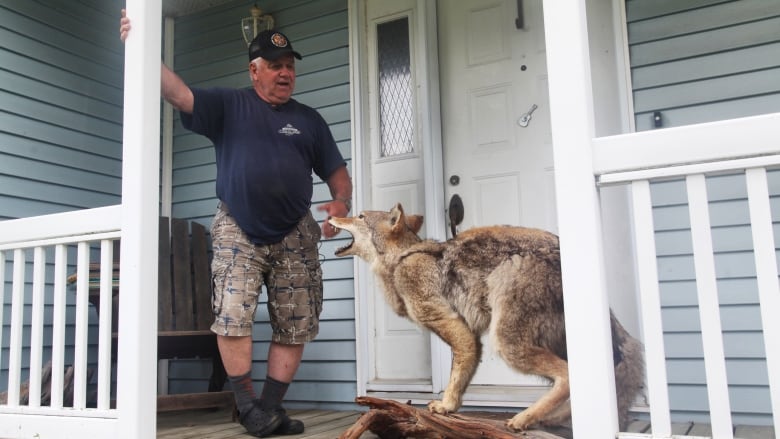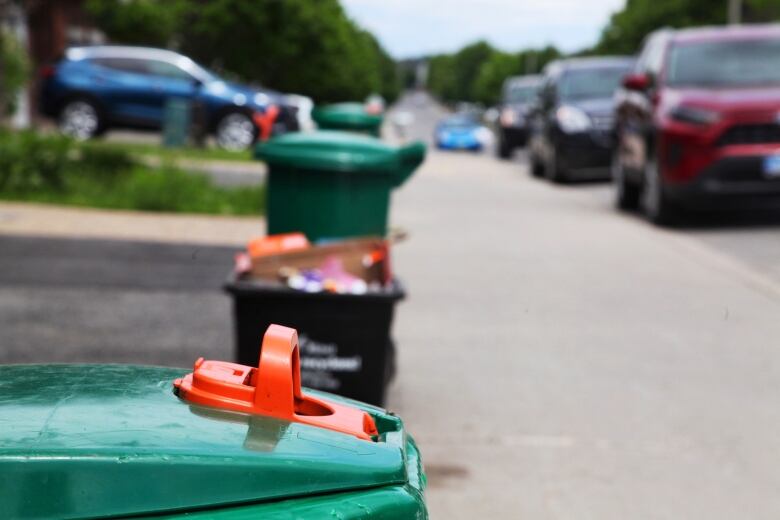Aggressive coyote problem 'has gone on too long,' hunter says
Gary Cooper says he's amazed no one's taken decisive action to end attacks in city's suburbs
A longtime professional coyote hunter says he can't believe local officials haven't acted more decisively to end a string of attacks by the wild animals in Ottawa's southern suburbs.
"Somebody told me you have to think like one to be able to hunt them successfully," said Gary Cooper, 77, one of Ottawa's most experienced coyote hunters.
Cooper and his dogs gained a reputation for their ability to outwit the cunning creatures. As a contract hunter for Ontario's Ministry of Natural Resources, he was hired to track down and shoot coyotes lurking near airbase runways, farmers' fields and suburban backyards, a task he executed with deadly success.
That's why he can't understand why at least one aggressive coyote is still on the prowl, terrorizing residents of Riverside South for two weeks now.
"Usually, if you get the ringleader that's doing the hunting and killing and teaching the young ones, then that stymies them until another gets brave enough," said Cooper, who still tracks and shoots about 20 coyotes a year, and said he knows half a dozen other hunters in Ottawa doing the same.
Pointing fingers
One man was hospitalized after being attacked by a coyote in Riverside South, while other residents have had frightening close encounters. Pets in the area have also been attacked and killed.
Throughout, municipal, provincial and federal officials have refused to take responsibility for the problem, each claiming it's the other's domain.
On Wednesday, Ontario's Natural Resources and Forestry Minister John Yakabuski took the unusual step of sending a public letter to the city councillor for the area, Carol Anne Meehan, reminding her that municipalities, not the province, are responsible for "deciding on and taking the necessary actions when human-coyote encounters occur within City boundaries."
The National Capital Commission, which owns the forested Greenbelt surrounding Riverside South, has also denied responsibility.
In Ontario, licensed trappers are permitted to trap both wolves and coyotes when in season, provided they use humane techniques. In Ottawa, the trapping season runs all year long.
As for hunting the animals, it's open season in the Ottawa area as long as hunters carry a valid small game licence and they're not hunting in designated urban areas where a city bylaw forbids the discharge of firearms.
Fresh attacks
Meehan said bylaw services has contracted an expert and applied for a special permit, but wouldn't say what method would be used to neutralize the aggressive animal or animals.
Meanwhile, Riverside South residents are growing increasingly weary as more stories emerge.
In the early morning hours of Friday, May 29, David Duncan, a captain with Ottawa Fire Services, opened the door of Station 37 on Earl Armstrong Road to find a shoeless young man who claimed he'd lost his footwear throwing them at a pursuing coyote.
When Duncan stepped outside to take a look, he was greeted by a large, growling coyote.
"I didn't expect to see that. It's crazy," he said.
Around 12:30 a.m. last Sunday, Barrhaven resident Mike Kirchhoff, 29, heard the blood-curdling scream of an animal in pain. He ran outside and found himself standing between the wounded family cat, Smoky, and a coyote the size of their other pet, a German shepherd.
"I held it off for 20 minutes with a golf club. It was relentless, circling around me, trying to find the cat," Kirchhoff said.
The cat died of its injuries, and now Kirchhoff joins a long list of suburban Ottawa residents asking why the attacks are permitted to continue.
Only solution
Brent Patterson, the Ministry of Natural Resources and Forestry's lead researcher on wolves and coyotes, said the best explanation for the unusual behaviour is that the animals have learned to associate people and developed areas with food.
Patterson added relocating a coyote rarely solves the problem.
"MNRF research has shown that coyotes are highly mobile species and can travel hundreds of kilometres to return to their original territory," Patterson said. To stop the spread of disease, it's also illegal to relocate a coyote farther than one kilometre from its home.
Cooper agrees relocation won't work. "They'll be back," he said.
Lethal trapping is one option, but Cooper pointed out it's a "non-selective" method that could cause the deaths of domestic pets.
Cooper said the inevitable answer to Ottawa's aggressive coyote problem is the same one he's used for 50 years: tracking hounds and a 12-gauge shotgun loaded with short-range #4 buckshot pellets.
"This has gone on too long," the veteran coyote hunter said.
Article Source: cbc.ca








Comments
Post a Comment